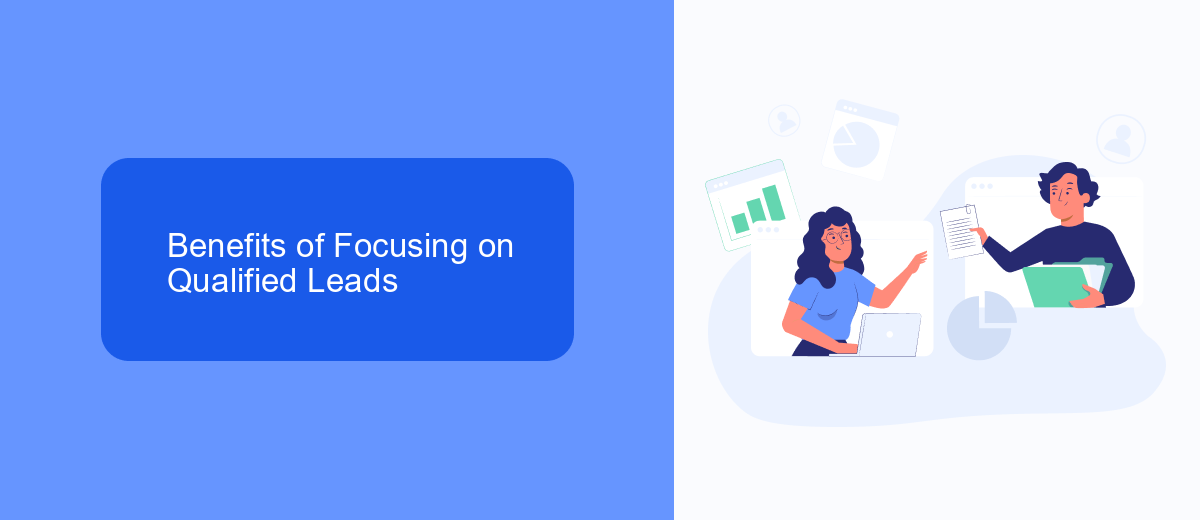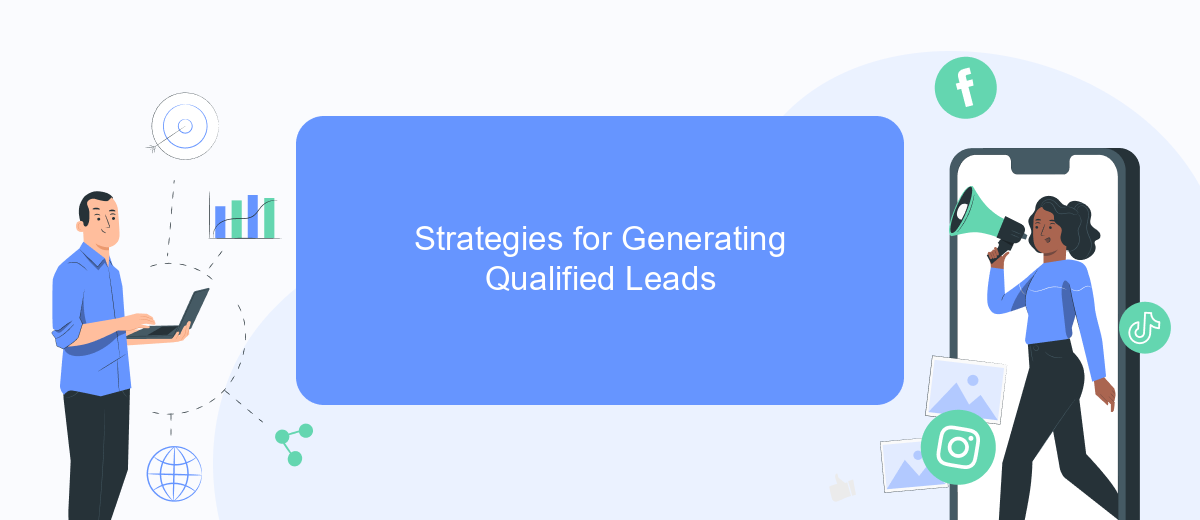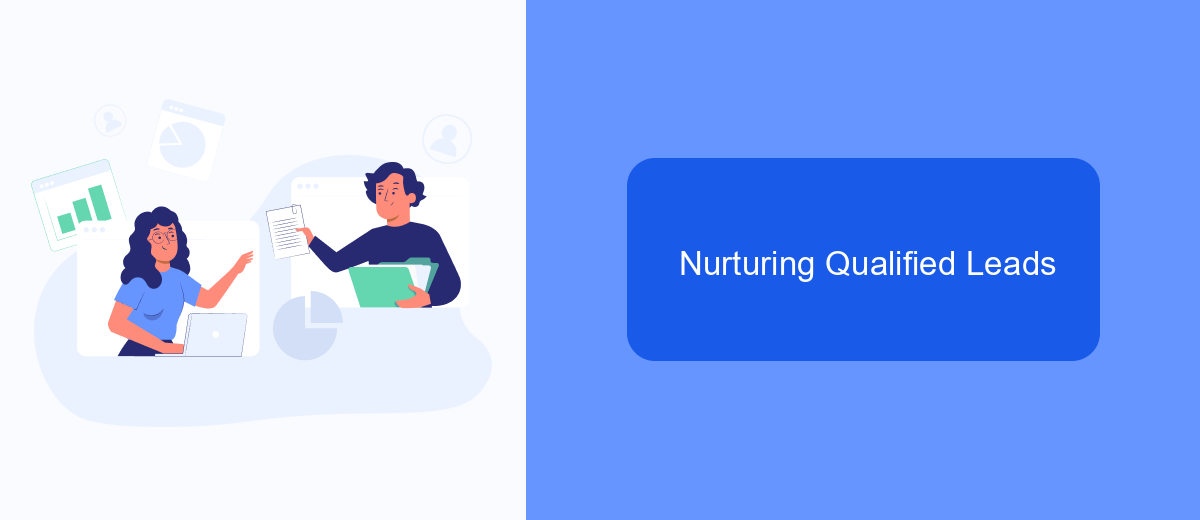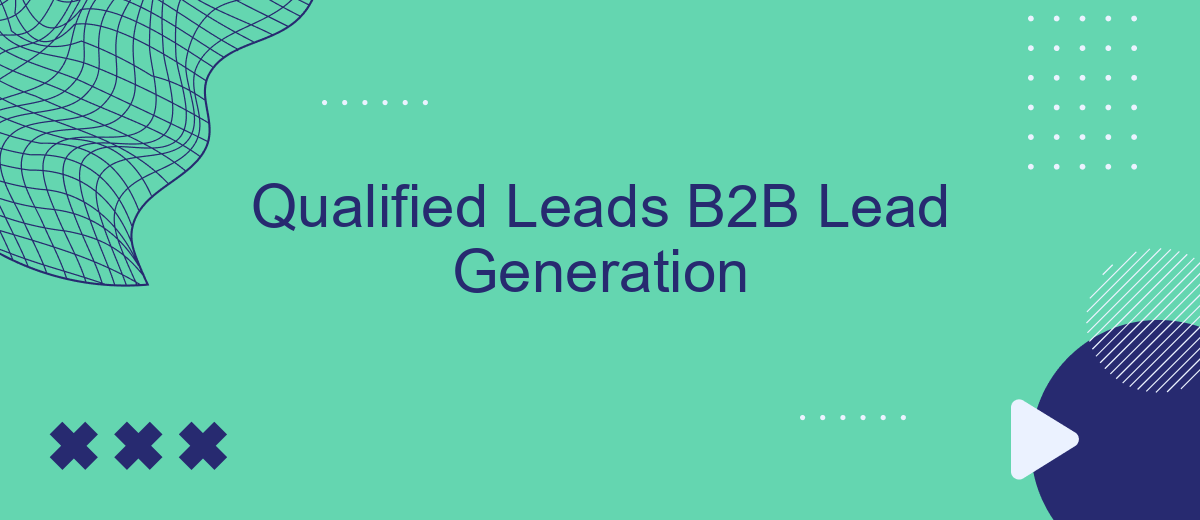In the competitive landscape of B2B marketing, generating qualified leads is crucial for business growth and success. Qualified leads are potential clients who have shown genuine interest in your products or services and meet specific criteria that align with your target market. This article delves into effective strategies for B2B lead generation, offering insights into how businesses can attract and convert these valuable prospects into loyal customers.
Definition of Qualified Leads
In the realm of B2B lead generation, understanding what constitutes a "qualified lead" is pivotal to the success of any marketing strategy. A qualified lead is a contact that has been vetted and assessed to have a genuine interest in the products or services offered by a business. This means they are more likely to convert into a paying customer, thereby increasing the efficiency of the sales process.
- Demographic Fit: The lead matches the target demographic criteria set by the company, such as industry, company size, or job role.
- Engagement Level: The lead has shown active engagement with the company’s content or outreach efforts, indicating a higher likelihood of conversion.
- Budget and Authority: The lead has the financial capacity and decision-making authority to make a purchase.
Identifying qualified leads involves a combination of data analysis and strategic outreach, ensuring that sales teams focus their efforts on prospects with the highest potential. By refining the criteria for what makes a lead qualified, businesses can enhance their lead generation efforts, ultimately driving more successful and profitable customer relationships.
Benefits of Focusing on Qualified Leads

Focusing on qualified leads in B2B lead generation significantly enhances the efficiency of your sales process. By targeting leads that are more likely to convert, businesses can allocate their resources more effectively, reducing the time and effort spent on pursuing unqualified prospects. This targeted approach not only increases conversion rates but also improves the overall return on investment for marketing campaigns. Furthermore, engaging with qualified leads allows sales teams to tailor their communication strategies, addressing specific needs and pain points, which in turn fosters stronger relationships and trust with potential clients.
Moreover, leveraging tools like SaveMyLeads can streamline the process of identifying and nurturing qualified leads. SaveMyLeads offers seamless integration with various platforms, enabling businesses to automate lead management and ensure that valuable leads are promptly followed up. This automation reduces the risk of losing potential clients due to delayed responses and ensures that sales teams can focus on high-priority tasks. Ultimately, concentrating on qualified leads not only boosts sales performance but also enhances customer satisfaction, leading to long-term business growth and success.
Strategies for Generating Qualified Leads

Generating qualified leads in B2B markets requires a strategic approach to identify and engage potential customers effectively. By focusing on targeted efforts, businesses can enhance their lead generation process and increase conversion rates. Here are some strategies to consider:
- Identify and define your ideal customer profile to tailor your marketing efforts towards those most likely to benefit from your products or services.
- Leverage data-driven insights and analytics to understand customer behavior and preferences, enabling more personalized marketing strategies.
- Utilize content marketing to provide valuable information and establish thought leadership, attracting potential leads through informative and engaging content.
- Implement account-based marketing (ABM) to focus on high-value accounts, offering customized solutions and fostering long-term relationships.
- Optimize your website and landing pages for lead capture with clear calls-to-action and easy navigation to encourage conversions.
By integrating these strategies into your lead generation efforts, you can effectively attract and convert qualified leads, ultimately driving growth and success for your B2B business. Consistent evaluation and adaptation of these strategies will ensure they remain effective in an ever-evolving market landscape.
Nurturing Qualified Leads

Nurturing qualified leads is a crucial step in the B2B lead generation process. It involves building relationships with potential clients who have shown interest in your products or services but are not yet ready to make a purchase. By providing valuable content and personalized communication, you can guide these leads through the sales funnel, increasing the likelihood of conversion.
Effective lead nurturing requires a strategic approach that combines various marketing techniques. It is essential to understand the needs and pain points of your leads, allowing you to tailor your messaging accordingly. This personalized approach helps build trust and keeps your brand top-of-mind when the lead is ready to make a decision.
- Send targeted email campaigns with relevant content.
- Utilize social media to engage and interact with leads.
- Offer webinars or free trials to showcase your expertise.
- Regularly assess and refine your lead nurturing strategy based on performance metrics.
By nurturing qualified leads effectively, businesses can improve their conversion rates and build long-lasting customer relationships. This process not only enhances the customer experience but also maximizes the return on investment for lead generation efforts. Remember, nurturing is not a one-time activity but an ongoing process that requires consistent attention and adaptation.
Conclusion
In conclusion, generating qualified leads in the B2B sector requires a strategic approach that combines targeted marketing efforts, data-driven insights, and efficient lead management processes. By focusing on understanding the specific needs and pain points of your target audience, businesses can tailor their messaging and outreach efforts to attract high-quality prospects. Utilizing advanced tools and platforms can further streamline the lead generation process, ensuring that potential leads are effectively nurtured and converted into valuable business opportunities.
Integrating various marketing and sales tools is crucial for optimizing lead generation efforts. Services like SaveMyLeads can play a pivotal role in automating and simplifying the integration of different platforms, allowing businesses to seamlessly connect their CRM systems with marketing channels. This not only enhances the efficiency of lead management but also ensures that valuable data is consistently updated and accessible. Ultimately, by leveraging the right strategies and technologies, businesses can significantly improve their ability to generate and convert qualified B2B leads, driving sustainable growth and success.
FAQ
What is a qualified lead in B2B lead generation?
How can I generate more qualified B2B leads?
What role does automation play in B2B lead generation?
How do I ensure my leads are qualified?
What are common challenges in B2B lead generation?
SaveMyLeads is a simple and effective service that will help you automate routine tasks and optimize business processes. Stop wasting time uploading leads from Facebook manually – you can do it automatically, saving a lot of time and money. Eliminate routine from workflows and achieve more with minimal investment of money, effort and human resources.
